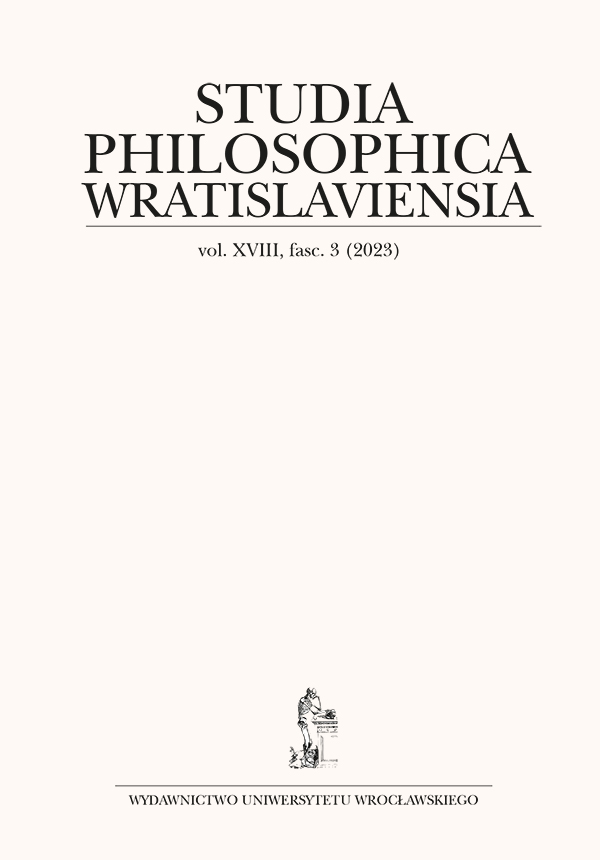

Artykuły

When engaging in a philosophical analysis of body and corporeality in a political context, it is essential to ask to what extent, under what circumstances, and in accordance with what moral norms the state performs actions that have the bodies and lives of citizens as their object. This issue was already discussed in ancient philosophy, examples of which can be found in the writings of Plato and Aristotle, but also in ancient jurisprudence, especially in the law and the legal doctrine of ancient Rome.
Aware of such a previous history of studies on this topic, this analysis will discuss the three main ways in which state power over the life and health of citizens is manifested. Namely: (i) capital punishment (ii) policing and (iii) warfare. In addition, it will be indicated, based on Thomistic philosophy, what moral norms govern these state actions. The fundamental differences between the three main state powers — judicial, police, and military — will also be shown in the context of lethal actions undertaken on their basis.
Covarruvias y Leyva D. de, Opera omnia, Frankfurt: Sigmund Feierabend 1571.
Dean T., “Police Forces in Late Medieval Italy: Bologna, 1340–1480,” Social History 44 [2] (2019), pp. 151–172, DOI: 10.1080/03071022.2019.1579974.
Haskins C., The Renaissance of the Twelfth Century, Cambridge: Harvard University Press 1927.
Flieger K., “Historia policji od czasów II wojny światowej do współczesności,” Przegląd Naukowo-Metodyczny. Edukacja dla Bezpieczeństwa 3 [8] (2010), pp. 147–149.
Kołodko P., “Uwagi na temat odpowiedzialności ‘Magistratus Populi Romani’ w świetle prawa prywatnego oraz prawa publicznego,” Zeszyty Prawnicze 14 [3] (2014), pp. 117–147, DOI: 10.21697/zp.2014.14.3.06.
Mielnik M., “U źródeł policji polskiej: spojrzenie na tradycje w literaturze dwudziestolecia międzywojennego,” Studia Bezpieczeństwa Narodowego 8 [13] (2018), pp. 87–98, DOI: 10.37055/sbn/129899.
Misiuk A., Historia policji w Polsce od X wieku do współczesności, Warszawa: Wydawnictwo Akademickie i Profesjonalne 2008.
Mommsen T., Römisches Strafrecht, Cambridge: Cambridge University Press 2010.
Noldin H., Summa Theologiae Moralis: De Praeceptis, Feliciani Rauch (C. Pustet), Oeniponte 1954.
Pieprzny S., Policja. Organizacja i funkcjonowanie, Warszawa: Wolters Kluwer 2011.
Plescia J., “Judicial Accountability and Immunity in Roman Law,” The American Journal of Legal History 45 [1] (2001), pp. 51–70, DOI: 10.2307/3185349.
Pruss A., “The law enforcement model of war,” http://alexanderpruss.blogspot.com/2022/03/the-law-enforcement-model-of-war.html.
Russel J.C., “Gratian, Irnerius, and the Early Schools of Bologna,” The Mississippi Quarterly 12 [4] (1959), pp. 168–188.
Soto D. de, De Iustitia et Iure, Campo 1589.
St Thomas Aquinas, Summa Theologiae, Editio Leonina, Roma 1895.
St Thomas Aquinas, Summa Theologiae, transl. Fr. L. Shapcote, Steubenville: Aquinas Institute, Emmaus Academic 2018.
Ustawa Kodeks karny 6.06.1997 r., Dz.U. 1997 Nr 88, poz. 553.